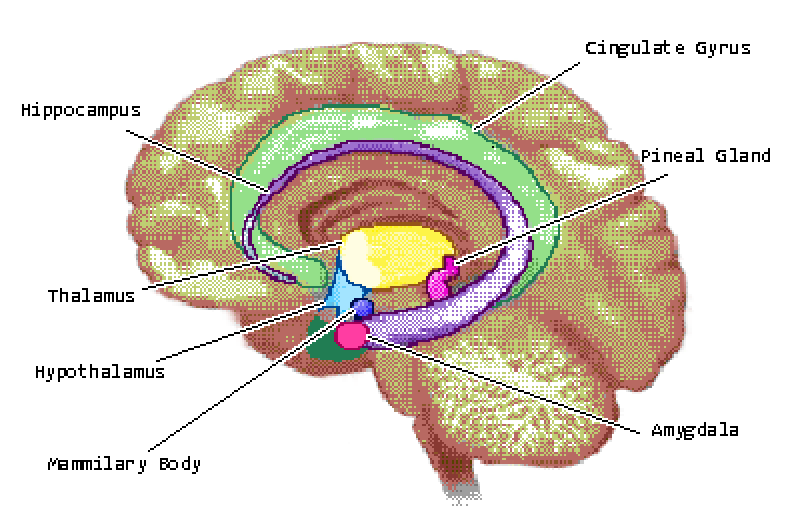
Very important area for memory, especially episodic memory.
The hippocampus works tightly with the cortex!
The thalamus sends information to the cortex and sends motor information to the body!
Thalamus + Hypothalamus = Middle Brain
Part of the Reticular Activating System (RAS), so the thalamus is implicated in attention.
Part of the Thalamus-amygdala pathway which is the "first alert" system.
The "first alert" system causes us to react without thinking.
Think about a time you have flinched at the sight of a bug,
thats the thalamus-amygdala pathway doing its job!
The hypothalamus tries to keep your body in equilibrium by sending important signals to other parts of the brain.
For example, it sends out hunger signals when the body does not have enough nutrition. This idea can be applied to all other basic needs (warmth, thirst, sex...)
It also controls hormones by either producing them or sending signals to parts that produce hormones (ex. pituitary gland)

The anterior parts of the cingulate gyrus, called the Cingulate Cortex, is implicated in integrating emotion and action.
Since it integrates emotion and action, the cingulate cortex is important for actions based on motivation!
My favorite of the limbic system! The amygdala has a big role in emotional learning
Apart from the Thalamus-amygdala pathway is is also conntected to the neocortex!
This pathway provides a more comprehensive context for processing emotional information.
The amygdala can "back-project" using special fibers that allow the amygdala to make the cortex pay more attention to threatening or emotionally urgent stimulus.
The amygdala has a bidirectional connection to the hippocampus.
This connection is important in remembering events that are emotionally charged and encoding emotionally charged information.